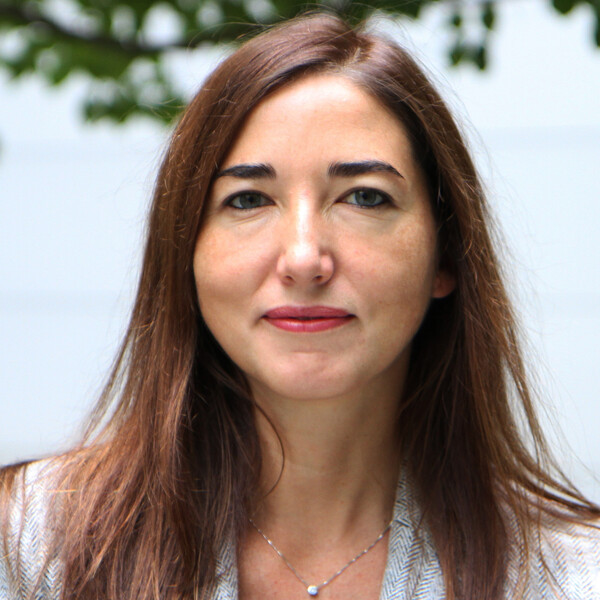Cristina Nostro
PhD

Degrees: Ph.D 2004
Affiliations:
McEwen Centre for Regenerative Medicine
Toronto General Research Institute, University Health Network
Banting and Best Diabetes Centre, University of Toronto
Ontario Institute for Regenerative Medicine
Courses Taught: Ex. PSL 1048/2013, PSL1066H/2015, PSL1080/2015
Research Synopsis
Research Interests: The Nostro laboratory is interested in elucidating the molecular regulators controlling pancreatic development and beta cell maturation. To reach this goal, the lab uses directed differentiation of human embryonic and induced pluripotent stem cells to mimic embryonic development and organ morphogenesis. Ultimately, we aim to translate our findings to potential treatments for Type I Diabetes patients.
Keywords: Human embryonic stem cells (hESCs), induced pluripotent stem cells (iPSCs), stem cell biology, directed differentiation, bioimaging, cell biology, diabetes, development, epigenetics, fetal programming, genetic expression, growth factors, hormones, human models, insulin, insulin secretion, molecular biology, molecular manipulations, pancreas, beta cells.
Detailed Description: The loss of beta cells in Type I Diabetes ultimately leads to insulin dependence and major complications that are difficult to manage by insulin injections. Recent improvements in islet transplantations for the treatment of Type I Diabetes are increasing the likelihood of finding a possible cure for this disease. However, the requirement for 2-3 donors per transplantation and the scarcity of donor pancreata has launched the search for an alternative source of beta cells for cell therapy purposes. Human embryonic stem cells (hESCs) and induced pluripotent stem cells (iPSCs) offer the ability to generate these cells in vitro, with the potential to rapidly translate basic scientific discoveries to therapeutic applications.
The focus of the Nostro lab is to elucidate the signaling pathways governing the formation, expansion and maturation of pancreatic progenitors using human pluripotent stem cell directed differentiation. Through this in vitro approach we aim to understand the genetic and epigenetic program that dictates pancreatic development and beta cell maturation. Due to the very limited accessibility of the human embryo, this represents a powerful and unparalleled system to understand key human developmental processes. Furthermore, patient-specific iPSC directed differentiation will allow us to study disease development and progression in ways that were previously inconceivable.
Our long-term goal is to translate the results of our studies to the clinic and to establish in vitro culture systems for disease modeling, drug toxicity and discovery assays.
METHODS USED
Cell and tissue culture: Embryonic stem cells, induced pluripotent stem cells, pancreas cells.
Procedures: Adenovirus, Elisa, gene expression analysis, immunohistochemistry, immunocytochemistry, microarrays, qRT-PCR, RT-PCR, siRNA, xenotransplantation.
EQUIPMENT USED
Analytical balances, bench top centrifuge, culture hood, culture incubators, digital microscope, fluorescence microscope, gel apparatus, low and ultra-low freezers, microwave oven, mini vortexer, real-time/thermocycler, setups for electropherosis, stirrer/hot plate, water baths.
PRESENT TRAINEES
Kathryn Cogger
Ashwin Seetharaman
Roman Korytnikov
PRESENT COLLABORATIONS
Outside the Department of Physiology:
Sara Nunes, Vasconcelos, IBBME, University of Toronto, Canada
Thomas Kislinger, Medical Biophysics, UHN, Canada
James Shapiro, University of Alberta, Edmonton, Canada
Committee Member or Officer of national/international scientific organizations
List:
- Coordinator Banting & Best Diabetes Charles Hollenberg Summer Studentship Program
- Committee Member, Banting and Best Diabetes Centre (BBDC).
- Advisor CF Canada-SikKids Collaborative Program in Individualized Therapy Development for Cystic Fibrosis.
- Member of the abstract review committee at the International Society for Stem Cell Research (ISSCR) 13th Annual Meeting, Stockholm, June 2015.
- Coordinator of the Ontario Institute for Regenerative Medicine Stem Cell Rounds 2013/2014 and 2014/2015 seminar series.
GRANT COMMITTEES (CURRENTLY SERVING)
Agency:
- National Institute of Health (NIH) 2014, 2015
- Great Ormond Street Hospital Charity 2015
- Banting and Best Diabetes Centre (BBDC) 2014, 2015
- Medical Research Council (MRC), UK 2015
Recent Publications
- Nostro MC, Sarangi F, Yang C, Holland A, Elefanty A, Stanley E, Greiner D, Keller G. “Generation of pancreatic progenitors from human pluripotent stem cells” Stem Cell Reports. Apr 14;4(4):591-604.
- Cheng X, Ying L, Lu L, Disimone A, Mills J, Kotton DN, Shen SS, Nostro MC, Choi JK, Weiss MJ, French DL and Gadue P. “Self-Renewing Endodermal Progenitor Lines Generated from Human Pluripotent Stem Cells” Cell Stem Cell. 2012 Apr 6;10(4):371-84.
- Basford CL, Prentice KJ, Hardy AB, Sarangi F, Micallef SJ, Li X, Guo Q., Elefanty AG, Stanley EG, Keller G, Allister EM*, Nostro MC*, Wheeler MB. “The functional and molecular characterization of human embryonic stem cell-derived insulin positive cells compared to adult pancreatic β cells”. Diabetologia 2012 Feb;55(2):358-71.
- Nostro MC, Sarangi F, Ogawa S, Holtzinger A, Corneo B, Li X, Micallef SJ, Park IH, Basford C, Wheeler MB, Daley GQ, Elefanty AG, Stanley EG, Keller G. “Stage specific signaling through TGFb family members and WNT regulates patterning and pancreatic specification of human pluripotent stem cells”. Development 2011, Mar;138(5):861-71.
- Green MD, Chen A, Nostro MC, d’Souza S, Schaniel C, Lemischka IR, Gouon-Evans V, Keller G, Snoeck HM. “Generation of Anterior Foregut Endoderm from Human Embryonic and Induced Pluripotent Stem Cells”. Nat Biotech. 2011 Mar; 29(3):267-72.
- Nostro MC, Cheng X, Keller GM, Gadue P. “Wnt, Activin and BMP signaling regulate distinct stages in the developmental pathway from embryonic stem cell to blood”. Cell Stem Cell. 2008 Jan 10; 2(1):60-71.
Appointments
Department of Physiology
